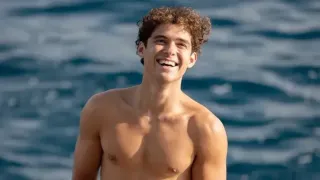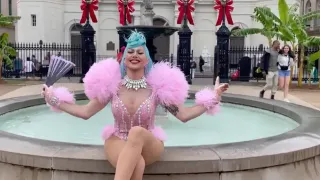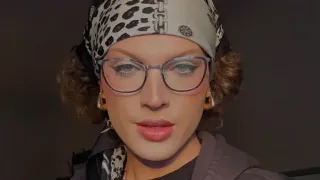Gays Protest Outside NYC Russian Consulate
The following is a press release from EDGE OUTreach Partner NYC Pride
NYC Pride | Heritage of Pride awarded $100,000 to 11 nonprofits that provide essential support and services for NYC's LGBTQIA+ community. Awarded through NYC Pride's "Pride Gives Back" program, the grants will help expand services and strengthen advocacy efforts for the LGBTQIA+ community, targeting under-resourced populations including LatinX, Black/brown, Afro- and Indo-Caribbean, food- and housing-insecure and trans individuals.
NYC Pride's 2025 "Pride Gives Back" grant awards include:
$10,000 to National Harm Reduction Coalition, a queer and trans-led harm reduction collective dedicated to creating safer, more affirming spaces for LGB/TGNCNB+ people who use drugs and engage in sex work.
$10,000 to Newark Pride, Inc. to expand educational support programs, charitable leadership development and community engagement events for Newark's LGBTQIA+ community.
$10,000 to NYC (dis)Order of Sisters of Perpetual Indulgence, a social advocacy group comprising queer nuns who are devoted to promoting human rights, respect for diversity and spiritual enlightenment.
$10,000 to Out My Closet, Inc., which provides specialized clothing donations, counseling services, and educational workshops for under-resourced and unhoused LGBTQ+ youth and adults.
$10,000 to QARAVAN, an essential advocacy group for LGBTQ+ folks in Eastern European countries. The grant will support emergency aid and help them expand the Rainbow Connections program, pairing local volunteers with LGBTQIA+ immigrants and asylum seekers to strengthen their sense of belonging in the U.S.
$10,000 to TRANScend Choral & Community Music Foundation, which builds and promotes the transgender and gender-expansive community through singing. The grant will provide resources to accommodate more members of the trans community, improve accessibility and use larger rehearsal and performance spaces.
$8,000 to the Caribbean Equality Project to provide essential advocacy for Afro and Indo-Caribbean individuals' immigrant rights in NYC's LGBTQIA+ community.
$8,000 to LGBT Center Intercultural Collective to help expand their outreach, wellness, and harm reduction programs for TransGNB, sex worker, migrant and QTBIPOC communities.
$8,000 to Love Wins NYC to reach and connect more LGBTQ+ and migrant communities with free, fresh quality produce and other essential resources.
$8,000 to Trans formative Schools, a 2025 Grand Marshal that is building a new model for inclusive education with after-school programming that centers trans joy and social justice.
"We're excited to uplift these nonprofits and community organizations that are doing the work day-in and day-out to improve the lives of queer New Yorkers," said NYC Pride Co-Chair Kazz Alexander.
"In a challenging economic and political climate, LGBTQIA+ nonprofits and community groups are in need of our support more than ever," added NYC Pride Co-Chair Michele Irimia.
Since 1984, NYC Pride has awarded more than $25 million to bolster local LGBTQIA+ services and strengthen advocacy efforts through Pride Gives Back. It is one example of a NYC Pride initiative that is threatened by our budget shortfall, which is why we launched a community fundraising campaign to help fill this year's funding gap. You can start your own fundraiser or contribute to an existing campaign at: www.nycpride.org/givenow.
Applications for the next round of Pride Gives Back funding will open in early 2026. Learn more about Pride Gives Back, community working grants for LGBTQIA+ organizations supporting our mission and events, and our other grant opportunities at https://www.nycpride.org/pride-partners/community-grants.






